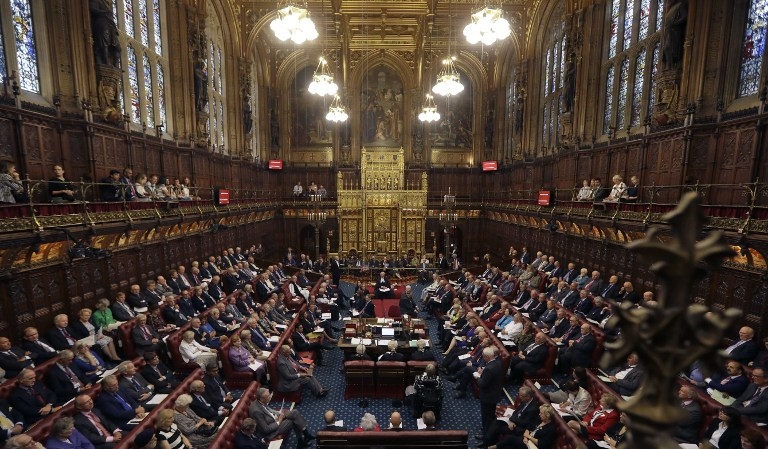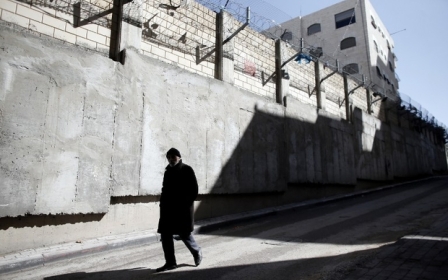Three things MPs should talk about if they really support Palestine

At a time when Israel’s most loyal defenders in the UK parliament pay lip service to a "two-state solution", what does it mean in Westminster to support the Palestinians?
If a group, or MP, is not talking about these three things, you should ask why
The question arises in light of a new campaign that the Labour Friends of Israel (LFI) is launching under the title "For Israel, For Palestine, For Peace", a rebranding exercise announced during the Labour Party’s recent annual conference.
According to LFI member and long-standing Israel supporter Ian Austin MP, the “central aim” of this initiative is to “persuade the government to back the establishment of an International Fund for Israeli-Palestinian Peace”.
The fund, in turn, would back “joint economic development and civil society projects that promote coexistence, peace and reconciliation".
When peace is PR
It was only five years ago that LFI last "reinvented" itself in order to “argue actively for the two-state solution and develop the ‘progressive case’ for Israel”. Back then, The Jewish Chronicle explained that the lobby group “has recognised that the political landscape has been transformed for supporters of Israel on the left in Britain".
In other words, a growing Palestine solidarity movement, enthused by the Palestinian-led Boycott, Divestment, and Sanctions (BDS) campaign, had put Israel’s supporters on the back foot, especially those identifying as liberals or on the left.
But those same "progressives," or liberal Zionists, also represented a vital last line of defence against a growing tide of support for things like BDS.
For years now, pro-Israel groups have urged against boycotts and, instead, recommended support for "apolitical" charities or "co-existence" groups. Any organisation, including Israeli human rights groups, that focuses on things like the occupation or abuses by the Israeli army is beyond the pale.
The attraction of so-called "people-to-people" peace programmes for Israel advocacy groups is obvious: it sounds more positive than simply denying Israeli crimes and, in addition, provides a useful substitute for anything approximating external pressure on Israel to end its systematic and worsening human rights violations.
The litmus test
So as pro-Israel advocacy groups, both inside and outside of Westminster, profess commitment to the "two-state solution," and with some MPs participating in both LFI and Labour Friends of Palestine, I suggest a kind of litmus test comprised of the following three elements. If a group, or MP, is not talking about the following, then you should ask why.
First, asymmetry. Is the framework one of occupier and occupied, coloniser and colonised? If the relationship between Israel and the Palestinians is being presented as one of two equal partners with shared responsibilities, then you’ve got a problem. The Palestinians are stateless, dispossessed, displaced, and occupied. Failing to reflect that is either a product of ignorance, or disingenuousness.
Second, international law. Is international law, or global human rights treaties, a benchmark or reference point? West Bank settlements, for example, are a grave breach of the Geneva Conventions and a key part of an apartheid regime. If you’re not hearing about that at all, or if settlements are waved away as an issue to be resolved in negotiations, that’s another red flag.
Third, and perhaps most crucially, accountability. It is possible to acknowledge the occupation, criticise Israeli violations of international law, but still oppose any efforts designed to end Israeli impunity. So what about an arms embargo? What about a boycott of Israeli and international institutions and companies complicit in the colonisation of Palestinian land?
Asymmetry, international law, and accountability. It’s not perfect or comprehensive. But if an MP or lobby group is skipping one or more of these key elements, then there is good reason to doubt their intentions, even if they profess support for "peace" and Palestinian statehood.
Beyond copy-paste
If you want proof, then go back to LFI, who have decided that it is best to present themselves as "pro-Israel" and "pro-Palestine". This is the same LFI who vehemently oppose any kind of accountability for Israeli violations of international law, the same LFI who smear Palestinians and their supporters, and who cite Israeli right-wing sources like "Palestinian Media Watch".
Last year, for example, LFI urged the reconstruction of the devastated Gaza Strip to be contingent on its demilitarisation, echoing the same “disarmament for development” slogan as hard-line Israeli Defense Minister Avigdor Lieberman (a position slammed by leading NGOs at the time). Earlier this year, LFI MPs helped hijack a debate on UK foreign aid to attack the Palestinian Authority.
The Palestinians need action, not another copy-paste condemnation from the Foreign Office and certainly not a cynical "pro-peace" campaign designed to neutralise opposition to, and secure continued impunity for, an Israeli government busy expanding settlements, demolishing Palestinian homes, and clamping down on dissent.
- Ben White is the author of Israeli Apartheid: A Beginner’s Guide and Palestinians in Israel: Segregation, Discrimination and Democracy. He is a writer for Middle East Monitor, and his articles have been published by Al Jazeera, al-Araby, Huffington Post, The Electronic Intifada, The Guardian’s Comment is free, and more.
The views expressed in this article belong to the author and do not necessarily reflect the editorial policy of Middle East Eye.
Photo: A general view shows the House of Lords chamber in session at the Houses of Parliament in London on 5 September 2016 during which Norman Fowler, the new Lord Speaker, speaks (AFP)
New MEE newsletter: Jerusalem Dispatch
Sign up to get the latest insights and analysis on Israel-Palestine, alongside Turkey Unpacked and other MEE newsletters
Middle East Eye delivers independent and unrivalled coverage and analysis of the Middle East, North Africa and beyond. To learn more about republishing this content and the associated fees, please fill out this form. More about MEE can be found here.





